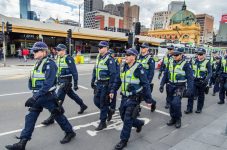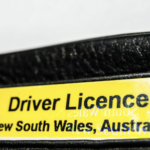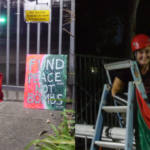Six Police Charged following an ICAC Investigation

The latest in a long string of ICAC investigations has surfaced in South Australia.
Today’s headlines announced that six South Australian police officers were charged with serious offences and faced court today.
The investigation by ICAC and the state’s anti-corruption branch, a collaborative operation, has been honing in on the group for months.
The officers first came to the attention of investigators because of ‘irregularities’ surrounding the group earlier this year.
Those charged include a sergeant, a senior constable and constables.
All six were plain-clothed officers, and made up six of the seven members of a local area unit which deals with street crime and low level drug offences.
There is no evidence to suggest that any drugs have ever been stolen.
Instead, the charges include abuse of public office and stealing a range of items including alcohol, tools and electrical goods.
The group of six police suspects is made up of four men, and two women.
According to the South Australia Police website, all have been charged with at least one count of abuse of public office and aggravated theft.
Two of the men and one female officer have also been charged with property damage.
All have been suspended from duty and will appear in court on 19 December this year.
They been granted bail and will appear at Adelaide Magistrates Court.
Police are also questioning the seventh officer from the unit.
However the good news is that while there are individual cases of people acting in a corrupt manner, or even in small groups, no other units were implicated during the inquiry, which began in February this year.
While acknowledging that police behaviour in this case was disappointing, the SA Police Commissioner does not want the incident to tarnish public opinion on the SA police force generally, which has 4500 members.
Having said that, the head of ICAC Bruce Lander has stated that several other investigations are taking place, with over one thousand complaints and internal reports received to date.
A former Supreme Court and Federal Court Judge, Mr Lander hopes that the very existence of his job is a deterrent for those who work in public sphere to avoid engaging in criminal conduct.
The SA ICAC has had a budget of $35 million over four years but Mr Lander believes that an increase is necessary if it is to cope with the demands that will be placed on the investigatory body in the near future.
The harm caused to the reputation of police when scandals like this hit are not easily calculated.
Such events are concerning to police, who rely heavily on public confidence for information about crime.
From politics, to police and transport, NSW public servants have not been immune to ICACs probing, either.
The NSW ICAC has been successful at exposing both sides of NSW politics as corrupt, even leading to Barry O’Farrell’s infamous resignation over an expensive bottle of wine.
Former police officer Shane Diehm faces prison after an investigation uncovered corruption, while former RailCorp boss Joseph Camilleri may be charged for corruptly soliciting and receiving money.
Recent proposals to give ICAC more power in NSW to investigate corruption came after the argument was made that existing provisions do not allow for adequate prosecution of misbehaving public servants.
In NSW, it is not always been the case that corruption can be criminally prosecuted, because it does not always fit into any available category of criminal offence.
Although Commissioner Mr Lander said the investigation into the South Australian police would have still gone ahead even if ICAC didn’t exist, it is beneficial that an independent body exists to ensure that politicians and police are held accountable for their actions, just like the rest of us.






